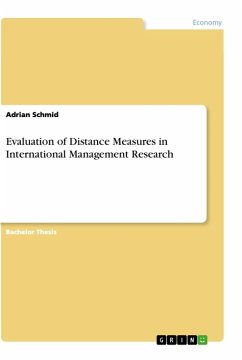Diploma Thesis from the year 2008 in the subject Business economics - Business Management, Corporate Governance, grade: 1, University of applied sciences, language: English, abstract: Ours is a challenging age for business. One of the reasons therefore is that the international customer increasingly demands efficiently integrated solutions for fairly complex problems. These expectations are further intensified by the enormous cost pressure and global competition companies are facing nowadays. By concentrating on the firm's core competences and by the continuously increasing international division of work these challenging expectations seem to be successfully addressed. This is the reason why international project organisations and project teams have gained enormous importance over the last years. Moreover, constantly innovated information and communication technology tools are contributing to a further facilitation of world wide collaboration. The management of locally dispersed or international project teams, however, is increasingly challenged by a fairly diverse spectrum of barriers. Collectively they display an enormous amount of complexity, consequently explaining the still considerably high failure rates of international project work.On the basis of theoretical analysis as well as an empirical investigation of selected international projects jointly conducted with project managers in practice, the conclusion of this thesis suggests that projects are significantly troubled by barriers whose impact regularly is neglected; more specifically these are barriers are related to peculiar issues such as culture, communication and leadership. This conclusion points out that by adequate consideration and acknowledgment of the enormous impact of these "soft barriers" international project work has better chances to reach the predefined goals. This thesis will further provide useful suggestions and findings with regards to the management of international projects. These findings derived from the observations made are meant to support companies and project managers in future in striving to successfully reach the desired outcomes of international projects.
Hinweis: Dieser Artikel kann nur an eine deutsche Lieferadresse ausgeliefert werden.
Hinweis: Dieser Artikel kann nur an eine deutsche Lieferadresse ausgeliefert werden.







